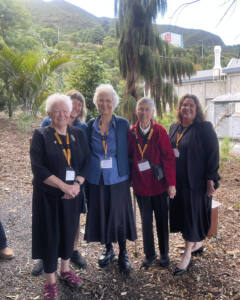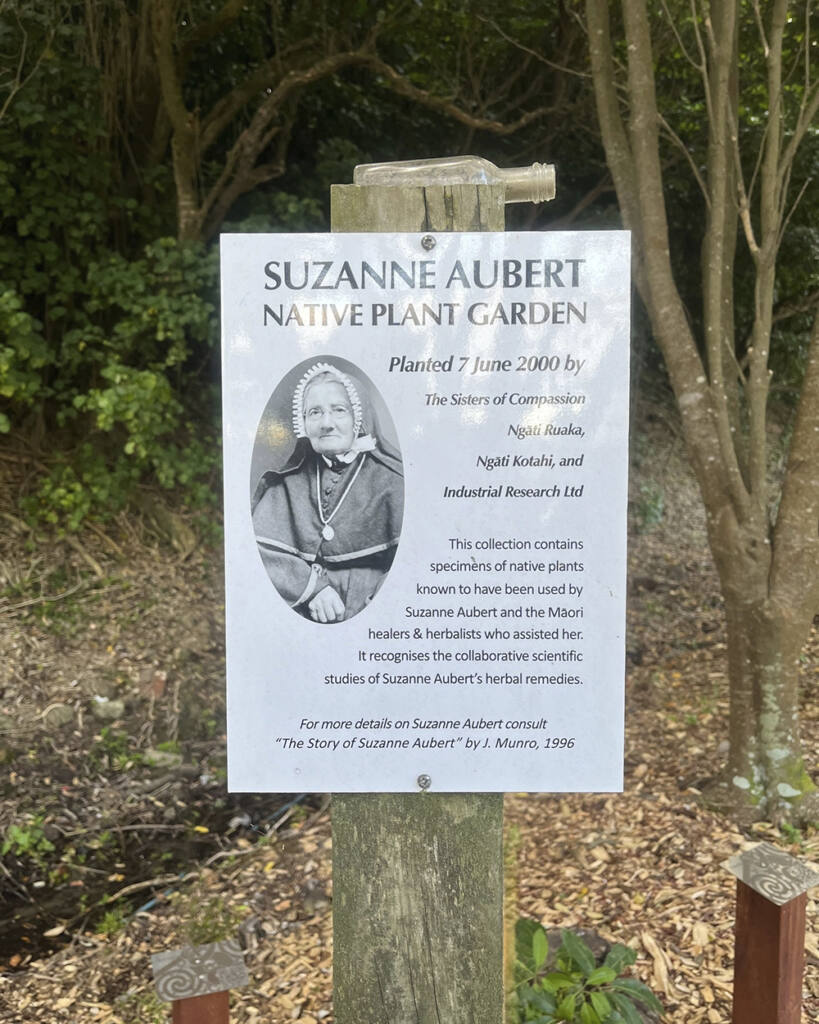
WelCom April 2024
A re-opening ceremony of the Suzanne Aubert Rongoā Garden at the Callaghan Innovation | Te Pokapū Auaha site in Gracefield, Lower Hutt, was held on 25 January this year.
Srs Margaret Anne Mills, Sue Cosgrove, Josephine Gorman, Veronica Hurrings dolc, along with other Compassion whānau members attended the official ceremony.
The Suzanne Aubert Native Plant Garden is located inside Callaghan Innovation’s restricted-access site at Gracefield.
The garden contains a collection of native plant specimens used by Suzanne Aubert and the Māori healers and herbalists who assisted her.
The original garden was planted on 7 June 2000 through a project led by the Sisters of Compassion, Ngāti Ruaka, Ngāti Kotahi, and the-then Industrial (IRI) Research Ltd. IRI was a Crown Institute that was merged to become Callaghan Innovation in 2013.
Recently, the Gracefield Innovation Quarter (GIQ) Programme Team has been managing a project to restore and rejuvenate the Rongoā garden. This has involved significant maintenance and pruning within the garden as well as re-planting a number of plants found in the original garden.
The team has researched the native plants and their Rongoā properties, and developed new signage to provide information about each of the plants within the garden. The re-planting and signage are now complete.
A garden sign reads: ‘This collection contains specimens of native plants known to have been used by Suzanne Aubert and the Māori healers and herbalists who assisted her. It recognises the collaborative scientific studies of Suzanne Aubert’s herbal remedies.’
The re-opening morning ceremony began with a karanga offered by Compassion Whānau Kaihautū Māori Maru Karatea-Goddard, followed by karakia offered by Te Āti Awa kaumātua Kura Moeahu and the Compassion Whānau Tumu Whakarae Deacon Danny Karatea-Goddard. This was followed by a cup of tea and refreshments to lift the ‘tapu’ of the occasion.
The garden’s project design manager Mr Dan Alexander expressed his gratitude to those who had attended and encouraged an ongoing relationship between the Callaghan Research Centre and the Sisters of Compassion.
Rongoā refers to the traditional Māori healing system based on Te Whare Tapa Whā (the four pillars) of health: wairua (spiritual), tinana (physical), hinengaro (psychological) and whānau (family). Rongoā rākau (plant remedies) form an integral part of Rongoā Māori, with a wide variety of plants used to treat numerous conditions, and Meri Hōhepa Suzanne Aubert was an important believer and steward of the Rongoā Māori in the late 19th century. Hence, the plants in this garden predominantly contain Rongoā properties.
Source: Deacon Danny Goddard, Co-CEO, Home of Compassion
